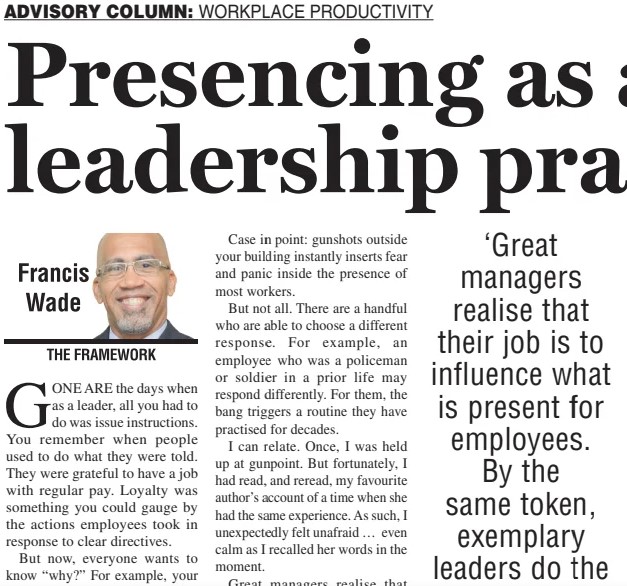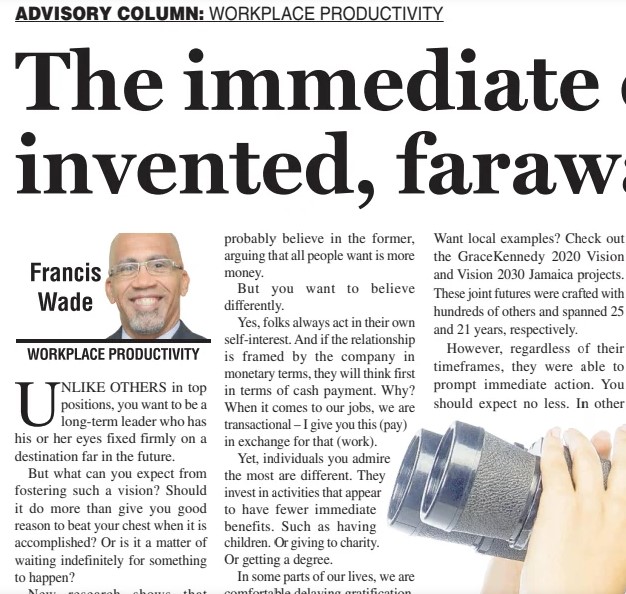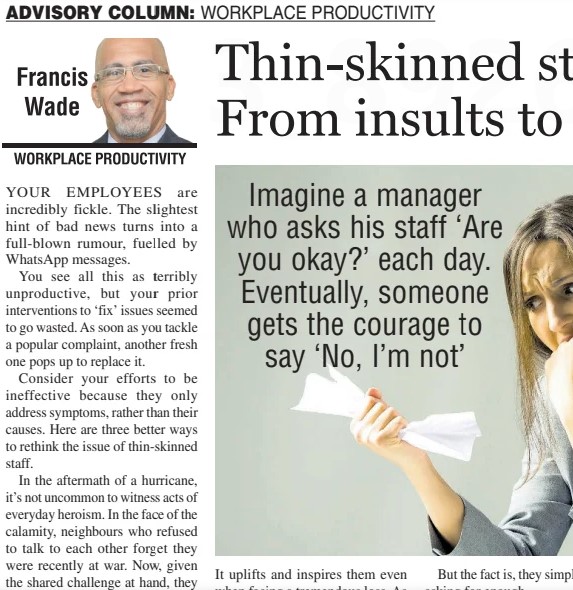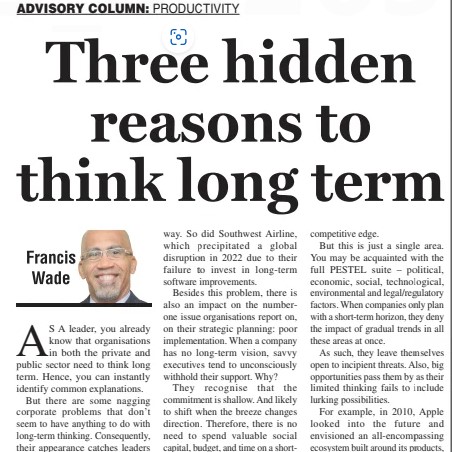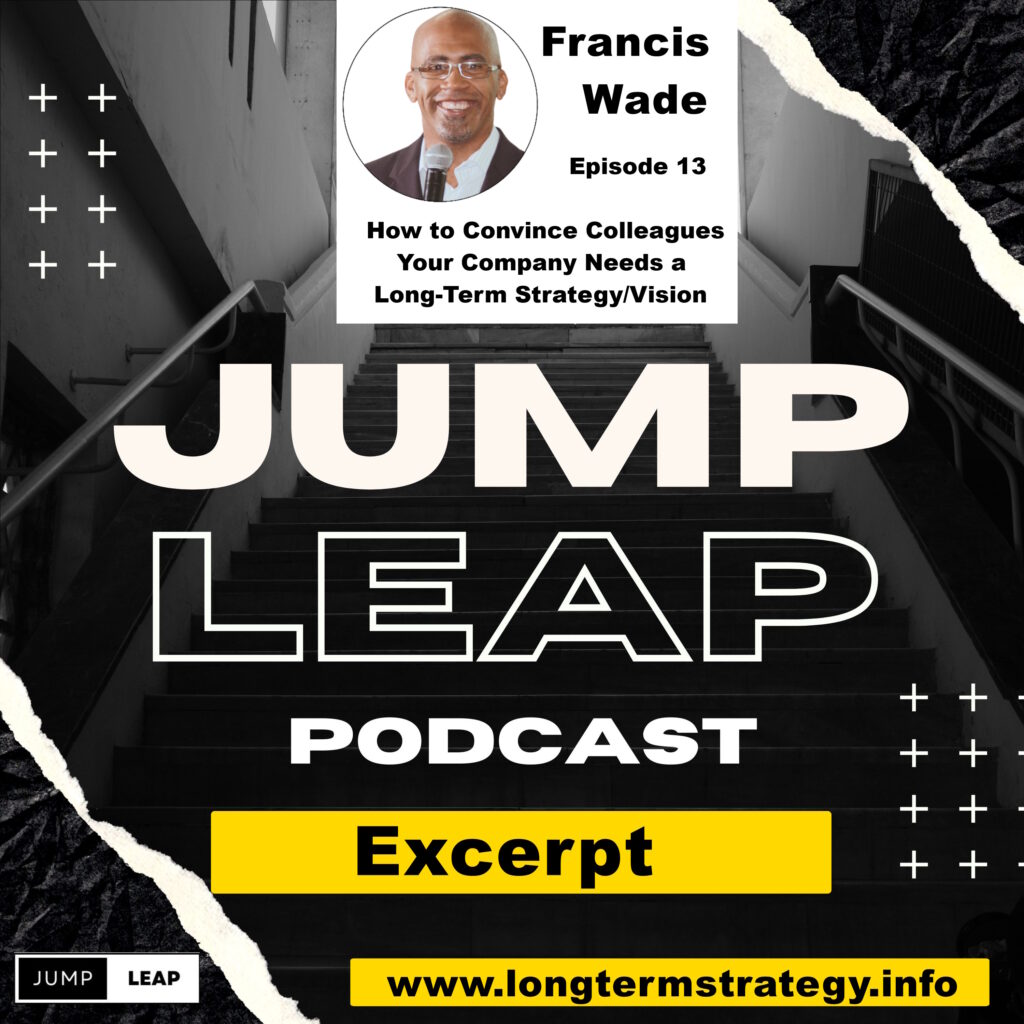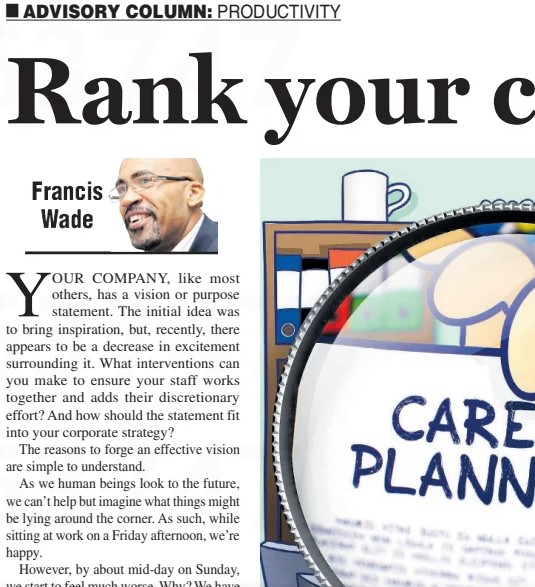In the workplace, your employees can be remarkably sensitive. The slightest hint of bad news ignites a wildfire of rumors, fueled by the rapid spread of WhatsApp messages.
What you perceive as unproductive behavior is often the result of your interventions only addressing surface-level symptoms rather than the root causes. As soon as you tackle one popular complaint, another fresh grievance emerges to take its place, leaving you feeling like you’re trapped in a never-ending cycle.
To break free from this pattern, it’s essential to rethink your approach to addressing thin-skinned staff. Instead of merely treating the symptoms, consider these three strategies for fostering a more profound sense of purpose and inspiration among your employees.
Hurricane Heroics: Unleashing Extraordinary Potential
In the aftermath of a natural disaster, such as a hurricane, we often witness acts of everyday heroism. Neighbors who once refused to speak to one another put aside their differences and unite to overcome the shared challenge at hand. In the face of life-threatening disruptions, people tap into hidden reserves of resilience and compassion.
But what if this extraordinary energy and resolve could be harnessed within the workplace, without the need for a catastrophic event to occur?
The answer lies in understanding the powerful influence of the future on human behavior. When people have something significant to look forward to, they inherently act differently. The problem is that many employees have become jaded, expecting only disappointments and discomforts from the future. This negative mindset fuels their hypersensitivity, causing them to perceive every error as a personal slight.
However, what if this obsession with the future could be reframed as an opportunity rather than a hindrance? Perhaps their reactions stem from a genuine desire to care about the future, and there’s a way to channel this passion in a more constructive direction.
An Urgent, Inspiring Future: Harnessing the Power of Purpose
The ability to envision a return to normalcy is what empowers people to bounce back swiftly after a hurricane. This imagined future provides them with something to look forward to, uplifting and inspiring them even in the face of tremendous loss.
As they survey the wreckage, they help others find hope, moving themselves out of their comfort zones, taking risks, overcoming historical biases, forgiving debtors, sacrificing time, and donating money. In other words, they tap into their hidden reserves of discretionary resources to spend untapped treasure.
As an employer, witnessing this transformation in the same staff members who nearly went on strike over cafeteria lunches can be astonishing. However, instead of dismissing your people as unsolvable mysteries, it’s crucial to recognize their wider humanity. As Friedrich Nietzsche said, “Those who have a ‘why’ to live, can bear with almost any ‘how’.”
Offering your staff a compelling “why” can be achieved by crafting a joint future that deviates from the default trajectory.
Your Company’s Peculiar Destination: Embracing Discomfort for a Greater Purpose
Most employees go through the motions, primarily concerned with their creature comforts and conveniences rather than anything else. In response, many managers become afraid to ask too much, habitually lowering their expectations to avoid conflict.
However, the reality is that they simply aren’t asking for enough.
Imagine a manager who asks their staff, “Are you OK?” each day. Eventually, someone musters the courage to respond, “No, I’m not.” The manager inquires about the issue, resolves the problem, but continues to ask the same question the next day, perpetuating a cycle of addressing surface-level concerns.
Now, consider a dramatic alternative: A manager convenes their staff to create a vivid picture of the department’s future – an invented future that goes well beyond business-as-usual. This joint aspiration becomes a win-win for all involved, instantly repelling those who are the most resistant while attracting the best employees who crave a greater sense of purpose.
It’s as if a metaphorical hurricane has swept through, igniting a shared desire to take extraordinary actions, even if they cause personal “discomfort.” This phenomenon was observed by Holocaust survivor Viktor Frankl, who noted that those who found a “why” were more likely to survive the concentration camps. Additionally, Frankl stated:
“… mental health is based on a certain degree of tension, the tension between what one has already achieved and what one still ought to accomplish… Such a tension is inherent in the human being…”
“We should not, then, be hesitant about challenging man with a potential meaning for him to fulfill…What man actually needs is not a tensionless state but rather the striving and struggling for a worthwhile goal, a freely chosen task. What he needs is not the discharge of tension at any cost but the call of a potential meaning waiting to be fulfilled by him.”
Unfortunately, prioritizing purpose over comfort is a concept rarely taught in classrooms. However, it offers managers a powerful tool to inspire and engage their employees. By crafting a shared vision of a future that transcends the mundane, you can tap into your staff’s innate desire for meaning, fostering a sense of urgency and determination that propels them beyond their perceived limitations.
In the face of adversity, people are capable of remarkable feats. As a leader, your role is to create an inspiring “why” that ignites the same level of passion and commitment, transforming insults and hypersensitivity into a relentless pursuit of a greater purpose.

